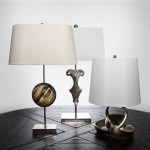Interior Decorator Classes: A Gateway to Transforming Spaces
The realm of interior design is a captivating blend of creativity, functionality, and aesthetics. If you're drawn to the art of transforming spaces into inviting and inspiring environments, then exploring interior decorator classes might be a rewarding endeavor. These classes offer a structured approach to acquiring the knowledge and skills necessary to embark on a fulfilling career path or simply enhance your own home decor expertise.
Types of Interior Decorator Classes
The world of interior decorator classes encompasses a diverse range of options, catering to various learning preferences and career aspirations. Here are some common types:
- Certificate Programs: Typically shorter in duration, these programs offer a focused curriculum covering core principles of interior design, color theory, furniture arrangement, and basic design software. They are an excellent starting point for beginners or those seeking to refresh their design skills.
- Associate's Degree Programs: These programs provide a more comprehensive education in interior design, delving into areas such as architectural drawings, space planning, lighting design, and historical design styles. They prepare graduates for entry-level positions in the industry.
- Bachelor's Degree Programs: These programs offer the most in-depth exploration of interior design principles, covering advanced design software, project management, and professional ethics. Graduates are equipped to pursue a wide range of career opportunities, from residential and commercial design to specialized areas like hospitality or healthcare.
- Online Classes: The flexibility of online learning has made interior design education accessible to a wider audience. Online classes offer a variety of formats, from self-paced courses to live instructor-led sessions, allowing students to learn at their own pace and from anywhere in the world.
- Workshops and Seminars: Short-term workshops and seminars focus on specific aspects of interior design, such as color psychology, window treatments, or furniture styling. They are ideal for individuals seeking to refine their skills in a particular area or explore a specific design niche.
Key Skills and Knowledge Covered in Interior Decorator Classes
Interior decorator classes provide a foundation in essential skills and knowledge that are indispensable for success in the field. Here are some key areas covered:
Design Principles and Elements
Classes delve into the fundamental principles of design, including balance, harmony, rhythm, and unity. Students learn how to apply these principles to create visually appealing and functional spaces. They also explore the elements of design, such as line, shape, color, texture, and pattern, and how to effectively use them to achieve desired aesthetic outcomes.
Space Planning and Layout
Efficient space planning is a crucial skill for interior decorators. Classes teach students how to analyze floor plans, assess furniture placement, and optimize traffic flow to create comfortable and functional living environments. They also explore techniques for maximizing space utilization and creating a sense of spaciousness, even in smaller rooms.
Color Theory and Psychology
Color plays a vital role in shaping the mood and atmosphere of a space. Interior decorator classes introduce students to color theory and psychology, teaching them how to select colors that complement each other, evoke specific emotions, and enhance the overall design concept. They also explore color trends and how to use color to create visual interest and highlight architectural features.
Lighting Design
Effective lighting is essential for creating a welcoming and functional space. Interior decorator classes cover lighting techniques, including natural light maximization, artificial light sources, and layering techniques to achieve different moods and highlight specific areas. They also explore the impact of lighting on color perception and overall ambiance.
Furniture Selection and Arrangement
Choosing the right furniture and arranging it strategically is a key aspect of interior design. Classes provide guidance on furniture styles, materials, and scale, teaching students how to select pieces that complement the overall design concept and meet the functional needs of the space. They also explore interior design trends and how to incorporate current styles into their designs.
Design Software
Many interior decorator classes include training on design software, such as AutoCAD, SketchUp, and Revit. These programs allow students to create detailed floor plans, 3D models, and renderings, enabling them to visualize their designs and communicate their ideas effectively with clients.
Client Communication and Project Management
Successful interior decorators must be skilled communicators and project managers. Classes may touch upon topics such as client consultations, contract negotiation, project timelines, and budget management. These skills are crucial for working effectively with clients, managing expectations, and delivering projects on time and within budget.
The Benefits of Interior Decorator Classes
Whether pursued for personal enrichment or professional advancement, interior decorator classes offer substantial benefits. They provide a structured learning environment, expert guidance, and a network of industry connections. These classes empower individuals with the knowledge and skills to:
- Transform Spaces with Confidence: Classes instill a deep understanding of design principles, enabling individuals to create aesthetically pleasing and functional interiors with greater confidence.
- Enhance Home Decor Expertise: Even if not pursuing a career in interior design, these classes can significantly improve an individual's ability to decorate and personalize their own living spaces.
- Pursue a Rewarding Career Path: Interior design offers a wide range of career opportunities, from residential and commercial design to teaching, writing, or product development. Interior decorator classes can provide the foundation for a fulfilling and creative career.
- Expand Personal and Professional Growth: Engaging in the world of interior design opens doors to creative exploration, personal fulfillment, and professional growth. It allows individuals to express their creativity and refine their design aesthetic.

Get Certified In Interior Design With Free Courses

Interior Design Anne Arundel Community College

Interior Decorating Classes How To Become An Decorator

Diploma Of Interior Design Open Colleges

Interior Decoration Design Courses Open Colleges

Interior Decorating Classes How To Become An Decorator

How To Become An Interior Designer Insights Archive Fairfield University News

Interior Design Subjects 2024 Imp How To Become An Designer After 12th Syllabus For Designing

Top 39 Interior Design Courses Certifications In 2024

10 Best Interior Designing Courses Offered In








